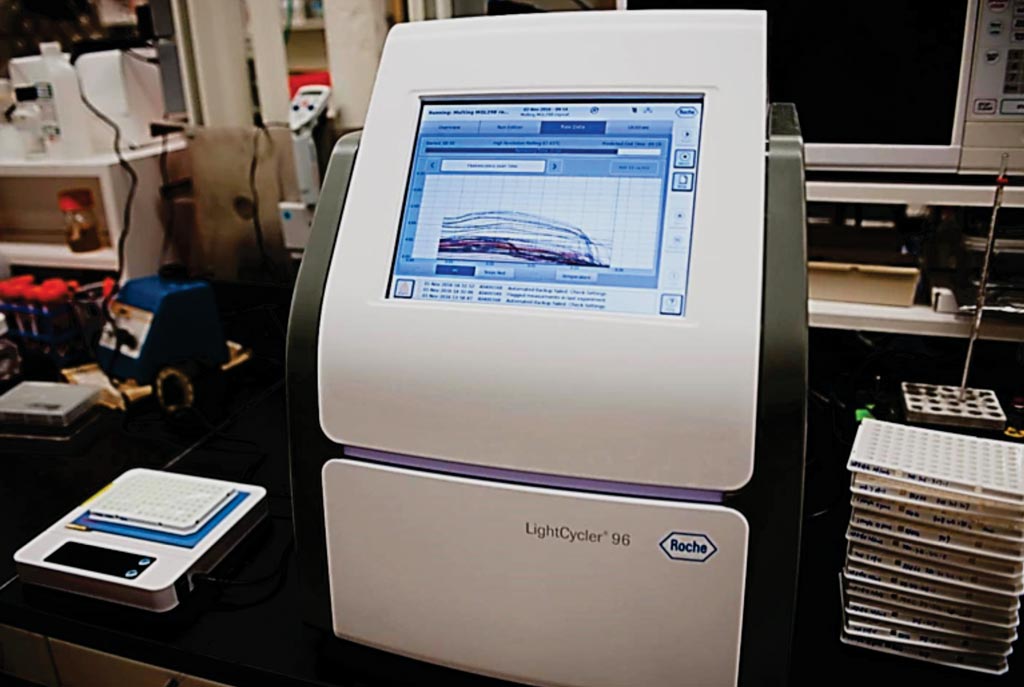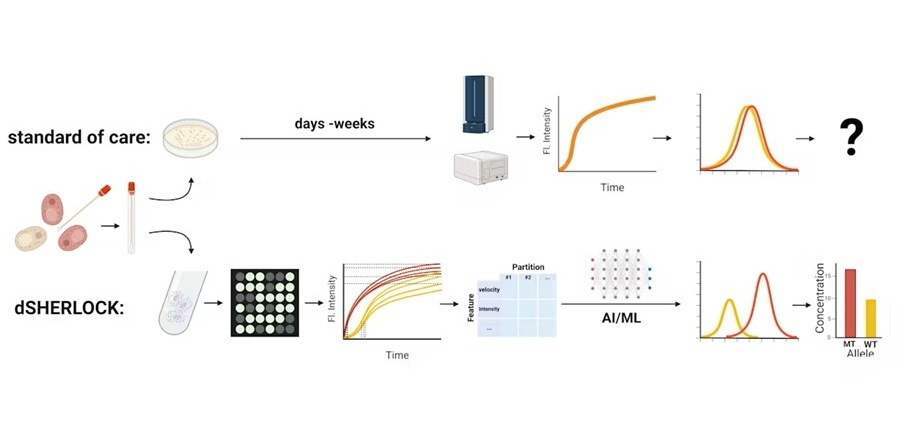Faster Way of Detecting Bacteria Developed
By LabMedica International staff writers
Posted on 16 Feb 2017
A faster way to detect the pathogenic bacteria that may cause patients to become sick has now been developed, giving physicians a better chance at saving lives by proscribing the most suitable antibiotic.Posted on 16 Feb 2017
Today, patients generally have to wait days to get final test result, but the new method of testing of urine samples, for example, produces positive results in two hours from start to finish versus the days it can take for equivalent hospital laboratory tests.

Image: The instrument used for the In-DX panel for rapidly detecting bacteria (Photo courtesy of G.L. Kohuth, Michigan State University).
Scientists at Michigan State University developed a point-of-care diagnostic test known as In-Dx. The detection process is relatively simple for both the patient and physician. A sample is collected and concentrated into a smaller amount. After applying heat, which breaks down the sample cells, it is then placed into the In-Dx testing panel and after 20 minutes of incubation time, the positive sample changes color, revealing the invading organism. The team is more than one year into a clinical trial that aims to validate the point-of-care diagnostic test, and the preliminary results already look promising.
The molecular diagnostic system can identify dangerous bacteria such as Escherichia coli, Staphylococcus infections, and even some superbugs. The test can produce results within two hours using blood, urine, saliva, wound, stool or cerebral spine fluid samples from infected patients. The team have concentrated on sepsis, a serious, life-threatening infection occurring more commonly in hospitalized patients, is one of the medical problems. If not treated properly, septic patients may have only hours to live. Currently, millions of people die each year worldwide partly because a definitive diagnosis of the sepsis-causing bacteria often takes too long.
Brett Etchebarne, MD, PhD, an assistant professor of emergency medicine, who helped develop the test said, “In-Dx has high sensitivity and specificity for detection of the most common infectious organisms which will help physicians quickly rule in or rule out specific bacteria. Knowing what your target is early in the fight against sepsis will be an invaluable advantage in helping maximize patient care strategies and outcomes.”













